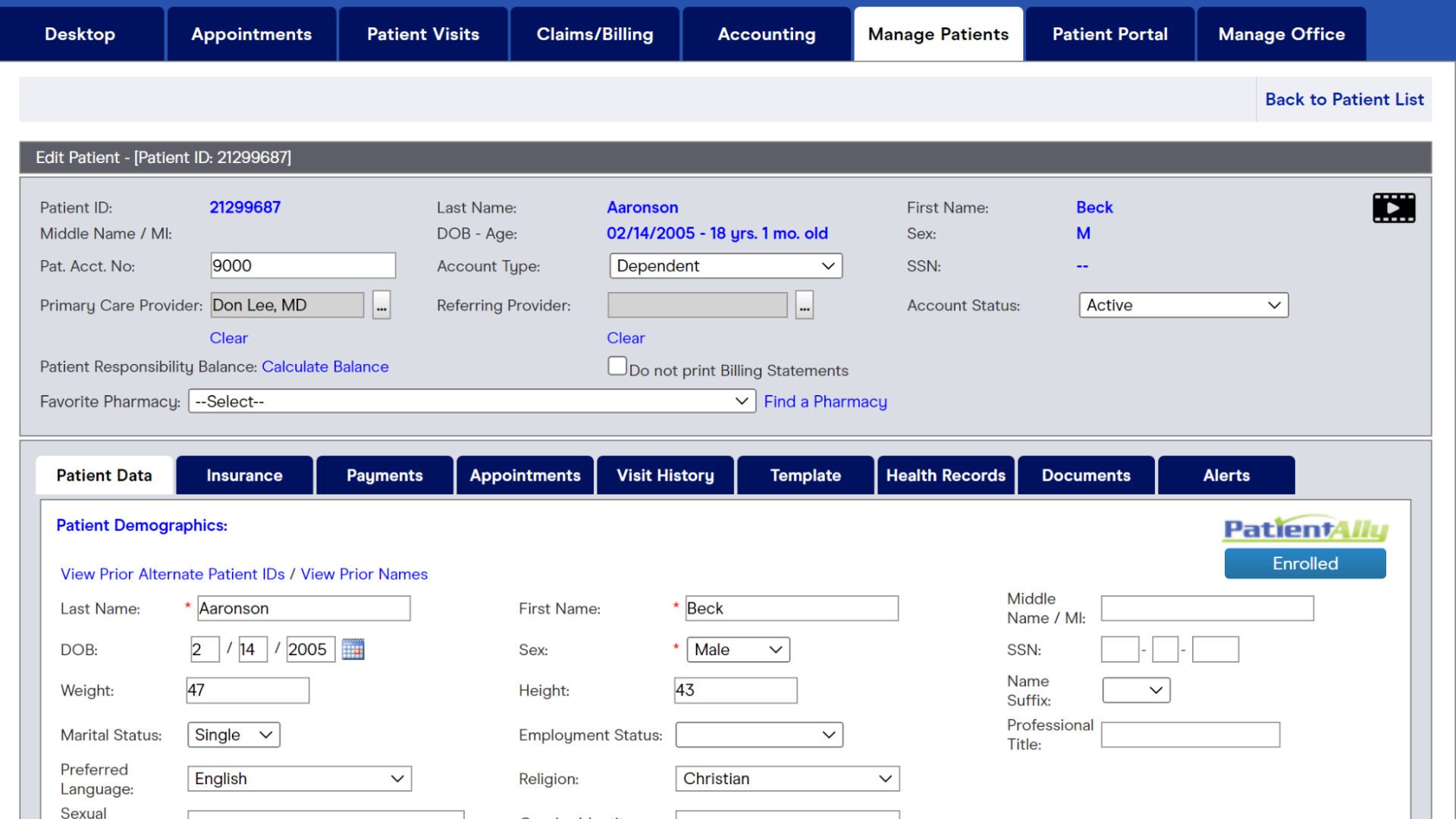Navigating the world of e-commerce software can be a challenging task, especially when considering B2B requirements. More than ever before, businesses are recognizing the importance of an efficient and competitive online presence to ensure their success.
This guide offers key insights into defining your specific B2B e-commerce needs, selecting the right platform, and implementing strategies that will streamline your operations for maximum results.
Ready to transform your business? Let’s dive in!
Key Takeaways
- Defining B2B e-commerce requirements is crucial for businesses to find the right platform that meets their specific needs and goals.
- When selecting a B2B e-commerce platform, consider factors such as integration capabilities, security, customization options, and essential features like custom pricing and order approval workflows.
- BigCommerce offers a wide range of features and capabilities that make it an excellent choice for B2B e-commerce platforms. It seamlessly integrates with existing systems, allows advanced product catalogueue management, and provides personalized pricing options.
The Importance of Defining B2B Ecommerce Requirements
Defining B2B e-commerce requirements is crucial for businesses as it helps them understand their specific needs and find the right e-commerce platform that can effectively meet those needs.
Creating a list of B2B e-commerce platforms
Choosing the correct B2B e-commerce platform can significantly affect your business operations and growth. Begin by creating a comprehensive list of platforms suitable for B2B transactions.
Review each option carefully, considering aspects such as their integration capabilities, security features, customization options, ease of use, and cost-effectiveness. Include top contenders like BigCommerce and ShopifyPlus due to their robust feature sets designed specifically for bulk ordering – a common prerequisite in B2B transactions.
There are also software recommendation websites you could utilize to broaden your search scope further. From this list of potential e-commerce solutions, narrow down based on your specific needs using a systematic evaluation process or an RFP (Request For Proposal) exercise tailored towards B2B firms.
Executing a B2B e-commerce RFP
Executing a B2B e-commerce RFP is a vital step in identifying the best e-commerce platform for your business. It involves sending out an official document, the Request for Proposal (RFP), to potential vendors.
This document thoroughly outlines your company’s specific needs and goals for their desired e-commerce solution. The RFP should cover all aspects of your future online store, including front-end and back-end requirements, communication/email requirements, integration needs, as well as hosting security and support.
Potential vendors will then respond with proposals detailing how their software or service can meet your B2B e-commerce requirements. Evaluate these responses carefully against the backdrop of your established minimum viable features to ensure they align with both businesses’ and customers’ needs alike.
Make sure not to rush this stage – taking time now could save significant resources later on by helping you avoid solutions that don’t fully cater to your specifications or those which may prove too complex or costly further down the line.
Misconceptions about B2B e-commerce requirements
Many businesses fall prey to common misconceptions about B2B e-commerce requirements, hindering their ability to choose the right platform and implement successful strategies. One widespread myth is that any e-commerce software will suffice for B2B transactions.
However, businesses must comprehend the unique needs of B2B commerce, such as bulk ordering capabilities and custom pricing options.
Another misconception revolves around integration capabilities. Some assume all platforms can seamlessly integrate with various third-party systems like ERP or CRM. But not every solution offers this level of flexibility- it’s crucial to ensure your chosen e-commerce software supports required integrations for smooth business operations.
Lastly, the notion that safety comes at a steep cost leads many ventures astray. Many quality B2B e-commerce platforms provide robust security measures without breaking the bank – reinforcing the importance of proper research and platform comparison before making an informed decision.
Navigating through these misconceptions paves the way towards unlocking modern technology benefits in harmony with specific business-to-business needs – becoming essential steps towards achieving success in the competitive sphere of B2B E-commerce.
The 5-Step Process for Defining B2B Ecommerce Requirements
Defining B2B e-commerce requirements involves a 5-step process:
| Step | Action | Purpose |
|---|---|---|
| Identify business objectives | Determine specific goals and objectives of your B2B e-commerce initiative. | Align e-commerce strategy with overall business goals. |
| Analyze existing processes | Evaluate current processes and workflows. | Identify areas for improvement and opportunities for e-commerce to streamline operations. |
| Assess technology requirements | Consider the technology infrastructure and integration capabilities. | Ensure the e-commerce platform can be integrated and scaled according to business needs. |
| Define user requirements | Understand and document customer needs and preferences. | Ensure the platform meets customer expectations for functionality and personalization. |
| Prioritize feature requirements | Create a prioritized list of essential features. | Ensure the platform addresses key pain points and aligns with business objectives. |
Key Considerations for B2B E-commerce Platform Selection
When choosing the right B2B e-commerce platform, there are several key factors to consider that will ensure your business’s success. From integration capabilities to customization options, this section will provide valuable insights into making the best decision for your company.
Don’t miss out on these essential considerations!
Type of B2B business
Different types of businesses have unique requirements when it comes to B2B e-commerce platforms. Whether you’re a manufacturer, distributor, or wholesaler, choosing the right platform that caters to your specific needs is crucial.
Some businesses may require advanced inventory management features for handling large volumes of products, while others might prioritize seamless integration with their existing enterprise resource planning (ERP) systems.
Understanding your business type and its specific demands will help you narrow down the options and select an e-commerce platform that aligns perfectly with your objectives.
Integration capabilities
B2B e-commerce platforms with strong integration capabilities are essential for businesses to streamline their operations. These platforms allow seamless integration with other systems like ERP and CRM, enabling efficient data flow and synchronization.
With robust integration capabilities, businesses can automate processes, avoid manual errors, and improve overall productivity. Integration also facilitates real-time inventory management, order tracking, and customer relationship management.
Choosing a B2B e-commerce platform that offers easy integration with existing systems is crucial for maximizing efficiency and achieving seamless business operations.
Security and cost
Choosing the right B2B e-commerce platform involves considering factors such as security and cost. Security is of utmost importance to protect customer data and prevent unauthorized access to sensitive information.
It is crucial for businesses to select a platform that offers robust security features, such as encryption protocols and secure payment gateways. Additionally, cost is another significant consideration.
Businesses should evaluate the pricing structure of different platforms, taking into account any additional fees or charges for customization or integration requirements. By carefully assessing both security and cost aspects, businesses can make an informed decision that aligns with their budget while ensuring the protection of their customers’ data.
Customization options
B2B businesses have unique requirements when it comes to their e-commerce platforms, and customization options play a crucial role in meeting those needs. With the ability to tailor the platform to specific business processes and workflows, customization allows for greater efficiency and productivity.
Whether it’s configuring product catalogues, implementing pricing strategies, or integrating with existing systems, having flexible customization options ensures that businesses can create a seamless online experience for their customers.
By leveraging customization capabilities, B2B companies can optimize their e-commerce platform to align with their unique requirements and deliver an exceptional shopping experience.
Essential features for B2B e-commerce
B2B e-commerce requires specific features to meet the unique requirements of business transactions. Here are some essential features to consider:
- Custom Pricing and Discounts: Tailor pricing is based on customer segments and offers volume-based discounts for bulk orders.
- Multiple Catalogs and Pricing Tiers: Create separate catalogues and pricing tiers for different customer groups or regions.
- Request a Quote Functionality: Allow customers to request price quotes for customized or large orders.
- Advanced Product Search and Filtering: Enable customers to quickly find products based on specific attributes, such as SKUs or specifications.
- Real-time Inventory Management: Provide up-to-date stock availability information to prevent backorders or overselling.
- Order Approval Workflows: Implement hierarchical workflows to ensure proper authorization for purchase orders.
- Flexible Payment Options: Support various payment methods, including credit terms, online payments, and purchase order billing.
- Seamless Integration with ERP Systems: Integrate with existing enterprise resource planning (ERP) systems to streamline data synchronization and automate processes.
- Robust Reporting and Analytics: Gain insights into sales performance, customer behaviour, and inventory management through comprehensive reporting tools.
- Customer Account Management: Offer self-service capabilities for customers to manage their accounts, view order history, track shipments, and access invoices.
Why BigCommerce is a Top Option for B2B E-commerce Platforms
BigCommerce offers a wide range of features and capabilities that make it an excellent choice for B2B e-commerce. If you want to learn more about why BigCommerce stands out among other platforms, keep reading!
Features and Capabilities
B2B e-commerce platforms offer a wide range of features and capabilities that can significantly enhance your online business. These features are designed to streamline your operations, improve customer satisfaction, and drive sales. Here are some key features and capabilities to look for when selecting a B2B e-commerce platform:
| Consideration | Description |
|---|---|
| Seamless integration with existing systems | Ensure smooth data flow and streamlined processes by integrating with ERP, CRM, and other business systems. |
| Advanced product catalogue management | Manage complex product catalogues, including multiple variants, pricing tiers, and customization options. |
| Personalized pricing and discounts | Support custom pricing, volume-based discounts, and contract-specific pricing for B2B transactions. |
| Self-service customer portal | Allow customers to access account information, track orders, view invoices, place repeat orders, and manage profiles independently. |
| Multiple payment options | Provide various payment methods, such as credit cards, purchase orders, EFT, and B2B-specific payment gateways. |
| Robust order management capabilities | Enable bulk ordering, back ordering, shipment tracking, partial shipments, advanced inventory management, and quick reordering. |
| Advanced reporting and analytics | Generate detailed reports on sales trends, customer behaviour, inventory levels, and other key metrics for informed decision-making. |
| Mobile optimization | Ensure an optimized mobile experience for customers and team members in an era of prevalent online shopping via mobile devices. |
User experience
A seamless and intuitive user experience is crucial for any B2B e-commerce platform. Businesses must prioritize a user interface that is easy to navigate, ensuring that customers can find products quickly and efficiently.
Additionally, personalized account dashboards and streamlined checkout processes contribute to an excellent user experience. Implementing features such as saved order templates, bulk ordering capabilities, and robust search functionality further enhance the overall usability of the platform.
By focusing on creating a user-friendly interface, businesses can provide their B2B customers with an enjoyable and efficient online shopping experience.
Benefits for B2B businesses
- B2B e-commerce platforms offer features and functionalities specifically designed to cater to the unique requirements of B2B transactions.
- These platforms enable businesses to streamline their operations, improving efficiency and reducing manual work.
- They provide advanced order management capabilities, allowing businesses to handle complex pricing structures, bulk ordering, and custom product catalogues.
- B2B e-commerce platforms facilitate seamless integration with existing systems such as inventory management, CRM, and ERP solutions.
- They offer robust security measures to ensure sensitive business data is protected throughout the transaction process.
- B2B e-commerce platforms support personalization options, enabling businesses to tailor the shopping experience for individual customers or specific buyer groups.
- These platforms provide comprehensive analytics and reporting features that help businesses gain insights into their sales performance and customer behaviour.
- B2B e-commerce platforms offer scalability and flexibility, allowing businesses to easily adapt and grow as their needs evolve.
- They enable businesses to establish strong relationships with their customers by providing tools for efficient communication and collaboration.
- B2B e-commerce platforms open up new market opportunities for businesses by expanding their reach beyond traditional brick-and-mortar stores.
Tips for Choosing the Right B2B Ecommerce Platform
When choosing the right B2B ecommerce platform, it is essential to set clear goals, understand the complexities of B2B, consider integration requirements, and choose a reliable partner.
Setting the right goals
Setting the right goals is crucial when choosing a B2B ecommerce platform. By clearly defining your objectives, you can align them with the features and capabilities of the chosen platform.
This ensures that you select a solution that meets your specific needs and helps you achieve success in the B2B ecommerce space. Whether it’s increasing sales, streamlining processes, or improving customer satisfaction, setting clear goals will guide your decision-making process and lead to effective results.
Understanding the complexities of B2B
Understanding the complexities of B2B is crucial when selecting an e-commerce platform. B2B transactions involve unique requirements that differ from B2C, such as complex pricing structures, multiple buyer roles, and customized catalogs.
It’s important to choose a platform that can handle these complexities and provide features like bulk ordering capabilities and personalized customer experiences. By understanding the intricacies of B2B, businesses can select an e-commerce solution that meets their specific needs and ensures seamless operations for their customers.
Integration requirements
To successfully operate a B2B ecommerce platform, integration requirements play a crucial role. Integrating different systems and applications ensures seamless communication and data flow between various departments and processes within the organization.
This includes integrating with existing accounting software, inventory management systems, customer relationship management (CRM) tools, and other business-critical applications. By meeting integration requirements, businesses can streamline operations, reduce manual work, improve efficiency, and provide a better experience for both their internal teams and customers.
When it comes to selecting an ecommerce platform for B2B requirements, businesses need to consider its integration capabilities. The chosen platform should have the ability to integrate with essential third-party software systems effortlessly.
By doing so, businesses can leverage their existing infrastructure while expanding their capabilities with modern technology solutions. Integration is key to ensuring that all aspects of the business ecosystem are connected seamlessly for improved functionality and productivity.
[Fact 1] Successful integration of different systems allows for seamless communication between departments.
[Fact 2] Integration streamlines operations by reducing manual work.
Choosing the right partner
Selecting the right partner is crucial when choosing a B2B ecommerce platform. It is important to find a partner that aligns with your business goals and understands the complexities of B2B transactions.
Integration requirements should also be considered, ensuring seamless connectivity with other systems. By carefully selecting the right partner, businesses can ensure a successful implementation and maximize their chances of achieving their desired outcomes in the B2B ecommerce space.
Conclusion
In conclusion, “The Ultimate Guide To E-Commerce Software For B2B Requirements” provides valuable insights into selecting the right B2B e-commerce platform. It emphasizes the importance of defining specific requirements and features that cater to the unique needs of B2B transactions.
By following the recommended best practices and considering key factors such as integration capabilities and customization options, businesses can maximize their success in the B2B e-commerce space.
FAQs
1. What is e-commerce software for B2B requirements?
E-commerce software for B2B requirements is a platform that helps businesses manage online sales, transactions, and interactions with other businesses.
2. How can e-commerce software benefit my B2B business?
E-commerce software can benefit your B2B business by automating processes, improving efficiency, enhancing customer experience, and expanding your reach to a wider audience.
3. Can I customize the features of e-commerce software according to my specific needs?
Yes, most e-commerce software allows customization of features based on your specific needs and requirements.
4. Is it necessary to have technical expertise to use e-commerce software for B2B requirements?
No, you don’t need extensive technical expertise to use e-commerce software for B2B requirements as user-friendly interfaces are designed for easy navigation and management.
5. Does e-commerce software integrate with other systems or platforms used in my business?
Yes, many e-commerce platforms offer integrations with various systems such as customer relationship management (CRM), inventory management, payment gateways, and shipping providers.




